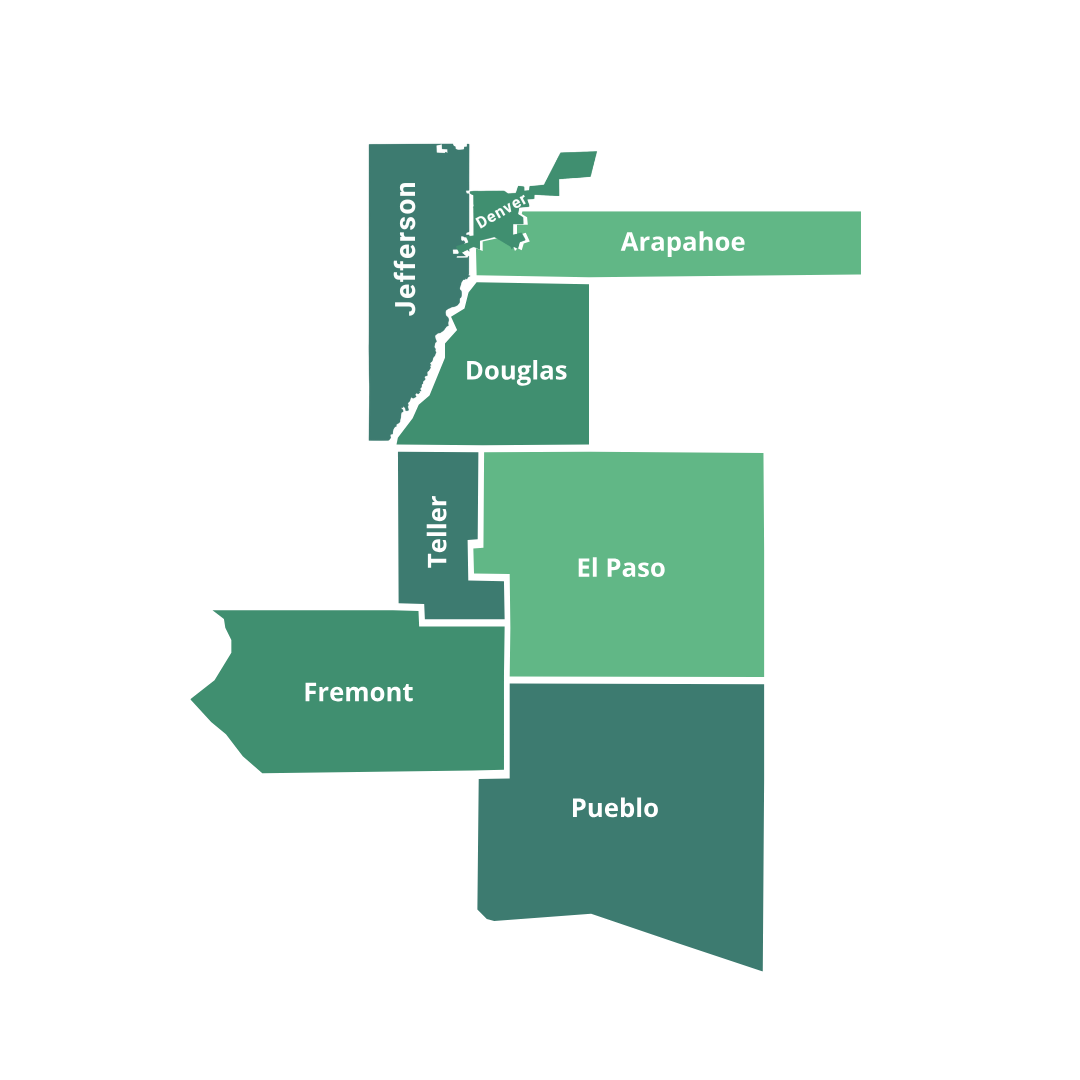





In Colorado, various actions fall under the broad category of “assault,” ranging from unwanted physical contact to severe offenses such as first-degree assault, second-degree assault,, and vehicular assault. Depending on the severity of the assault, these offenses can be charged as felonies, leading to significant legal consequences.
Being charged with felony assault is a serious matter, and Colorado’s legal system often imposes harsh penalties for violent crimes. If you’re facing such charges, it’s crucial to have an experienced criminal defense attorney in Colorado by your side to protect your rights.
At Right Law Group, our experienced Assault defense lawyers are ready to help you. We will explain your rights clearly and build a strong defense to protect your future. Contact us today for a free consultation to discuss your case. We have conveniently located offices in Colorado Springs, Highlands Ranch and Castle Rock.
Colorado counties we serve: Arapahoe, Denver, Douglas, El Paso, Fremont, Jefferson, Pueblo, and Teller.
First-degree assault is one of the most severe assault charges in Colorado. This charge applies when someone uses a weapon to intentionally harm, threaten, or seriously injure another person, and in doing so causes that person to suffer serious bodily injury.
Depending on the circumstances, this offense can be classified as a Class 2 or a 3 felony depending on the severity of the injury.
Second-degree assault covers actions that are less severe than first-degree assault but still result in harm. This charge can also apply when harmful substances are used on a victim or when bodily fluids are used against corrections officers, peace officers, or similar personnel. Depending on whether the assault was provoked, it can be classified as a Class 4 or Class 6 felony.
Third-degree assault is the least severe form of assault in Colorado. It typically involves someone causing bodily injury without serious harm, often due to reckless or negligent behavior. This charge is considered a Class 1 misdemeanor and can result in 364 days in jail, along with fines.
Colorado criminal law treats assault and battery as separate crimes. Assault is when someone intentionally causes bodily harm to another person. Battery, known as “menacing” in Colorado, is when someone is making a threat of bodily harm intending to cause fear.
This occurs when someone’s negligent or reckless driving results in another person being seriously injured. Vehicular assault charges can be classified as Class 4 or Class 5 felonies. Driving while under the influence and causing someone to be seriously injured is a class 4 felony.
Strangulation, a specific form of assault in Colorado, involves restricting someone’s breathing or blood circulation by applying pressure to their neck or obstructing their airway. This offense typically is typically charged as a Class 4 felony charge, but it can be escalated to attempted murder if the strangulation is more severe.
The penalties for assault in Colorado vary based on the severity of the offense:
These penalties may be influenced by factors like criminal history, the presence of aggravating or mitigating circumstances, and the effectiveness of the defense attorney.
If convicted of assault, the sentence imposed can potentially be reduced if your criminal defense attorney effectively presents mitigating circumstances to the judge. Several factors may influence a judge to lighten the sentencing, including:
Sentencing is at the judge’s discretion; however, the more compelling mitigators an experienced defense lawyer can present to the court, the greater the chance of minimizing the penalties.
Understanding the legal definitions of “deadly weapon” and “bodily injury” in Colorado can help clarify what actions might lead to related criminal charges. Colorado law defines a deadly weapon as any firearm (loaded or unloaded), knife, bludgeon, or any object that, when used or intended to be used, can cause death or serious injury.
Charges involving deadly weapons are serious, and legal assistance should be sought immediately if you’re facing such accusations.
Colorado law imposes harsher penalties for assaults on vulnerable populations, such as at-risk adults like pregnant women and elderly people over 70 years old, and first responders like law enforcement officers, firefighters, and medical professionals. Repeat offenders may also face life imprisonment under the state’s habitual offender laws.
Defending against assault charges in Colorado often involves strategies such as:
At Right Law Group, our criminal defense lawyers have over 30 years of experience defending clients against a wide range of charges, including assault, aggravated assault, extortion, and vehicular assault. If you’ve been charged with a crime, don’t face it alone. Contact our assault defense attorneys for a free consultation.
Learn more about our conveniently located offices in Colorado Springs, Highlands Ranch and Castle Rock.
Is there a difference between assault and battery in Colorado?
What Are The Charges for Assault Against a Family Member in Colorado?
In Colorado, assault can either be charged as a misdemeanor or as a felony, depending on the severity of the crime committed. The least serious assault charges are classified as a Class 1 misdemeanor, and the most serious are charged as class 3 felonies.
In Colorado, anytime someone intentionally or recklessly causes actual bodily injury to another person, that could be considered assault.
In Colorado, “bodily injury” is simply defined as “pain”. In other words, if someone claims that they felt pain during an incident that is considered a bodily injury, even if they do not have any visible injuries.
Assault is a very serious charge and can result in severe penalties. In Colorado, assault can be charged as a class 1 misdemeanor, a class 4 felony, or a class 3 felony, depending on the act that was committed.
